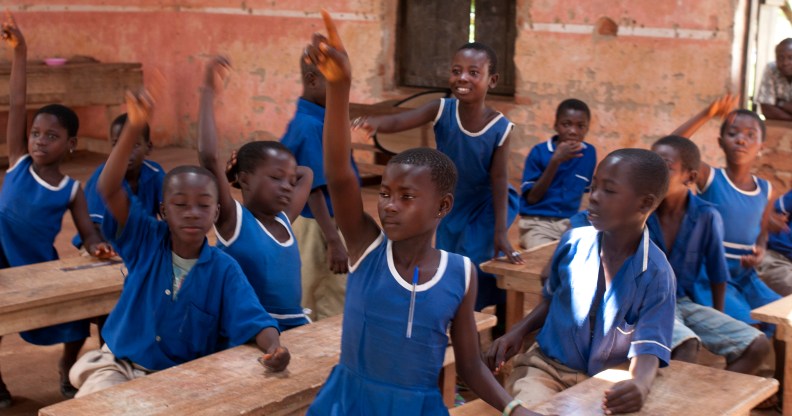Sex education in Ghana causes anti-LGBT backlash, despite having no LGBT content

New sex education guidelines may soon be implemented in schools in Ghana. (In Pictures Ltd./Corbis via Getty)
New sex education guidelines for schools in Ghana have been released and religious anti-LGBT+ activists in the country are calling them “satanic” – despite the fact that there is no LGBT content.
The guidelines for Comprehensive Sexuality Education (CSE) were released by the the Ghana Education Service (GES) outlining appropriate topics for sex education for students aged four to 17.
According to Human Rights Watch, LGBT+ people living in Ghana suffer discrimination and abuse in public and in private, and are still living under colonial-era law which prohibits gay sex.
The president of the Ghana Pentecostal and Charismatic Council called CSE “satanic” and said: “We don’t hate gays but just like armed robbery and prostitution, their action is against the Bible and we don’t want our children to be victims.”
Ghana’s National Coalition for Proper Human Sexual Rights and Family Values said on a radio show and posted on Facebook that the guidelines were part of the “LGBT agenda” and that “the age of five is too early for children to learn about sex.”
None of the modules for any age group explicitly cover LGBT+ issues, and the two modules recommended for four and five-year-olds are “what we believe in, how we interact” and “oral hygiene”.
UN representatives said the sex education curriculum will reflect that “LGBT issues are human rights”.
According to the CSE guidelines, the aim is to provide students with “accurate and reliable information on sexual rights and reproductive health” and to “nurture positive attitudes including open-mindedness, respect for self and others… [and a] sense of responsibility concerning sexual and reproductive health issues”.
The curriculum has not yet been approved by Ghana’s education minister, and advocates of the guidelines think that plans will move forwards despite the religious backlash.
A representative for the UN Population Fund in Ghana, which supported the development of CSE, told Reuters: “The curriculum does not include LGBT issues explicitly, but of course LGBT issues are human rights, so we talk about the rights of the individual to determine what they want to do.
“At the end of the day, Ghana cannot be left behind from the rest of the world.”

